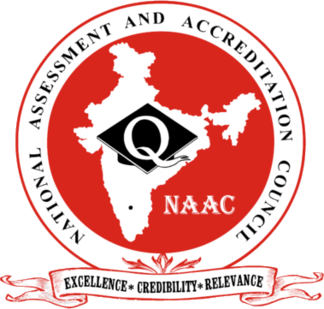Context
-
The National Assessment and Accreditation Council, an autonomous body under the University Grants Commission (UGC), is facing allegations of irregularities in the way it operates.
What are the functions of NAAC?
- Set up in 1994, is entrusted with assessing the quality of India’s higher educational institutions.
- It is an autonomous body funded by the University Grants Commission and headquartered in Bangalore.
- Following a multi-layered assessment process, it awards grades to colleges and universities.

Courtesy: Wikipedia - Its parameters include curriculum, faculty, infrastructure, research and financial well-being.
- The grades issued range from A++ to C. If an institution is graded D, it means it is not accredited.
How is the accreditation process carried out?
- The first step involves an institute approaching the NAAC for assessment.
- Once the NAAC sets the process in motion, the applicant has to submit a self-study report (SSR) containing information related to quantitative and qualitative metrics.
- The data is then validated by expert teams of the NAAC, followed by spot visits by peer teams comprising assessors drawn from universities across India.
Is a NAAC accreditation mandatory?
- While the UGC has over the years issued many circulars directing institutes to mandatorily undergo NAAC’s assessment, the process still remains largely voluntary.
- The National Education Policy (2020) has set an ambitious target of getting all higher educational institutes to obtain the highest level of accreditation over the next 15 years.
- However, according to information shared by the Centre in Lok Sabha in February, out of the 1,113 universities and 43,796 colleges in the All India Survey on Higher Education Report 2020-21, only 418 universities and 9,062 colleges were NAAC-accredited as on January 31, 2023.
Source: IE
Visit Abhiyan PEDIA (One of the Most Followed / Recommended) for UPSC Revisions: Click Here
IAS Abhiyan is now on Telegram: Click on the Below link to Join our Channels to stay Updated
IAS Abhiyan Official: Click Here to Join
For UPSC Mains Value Edition (Facts, Quotes, Best Practices, Case Studies): Click Here to Join
